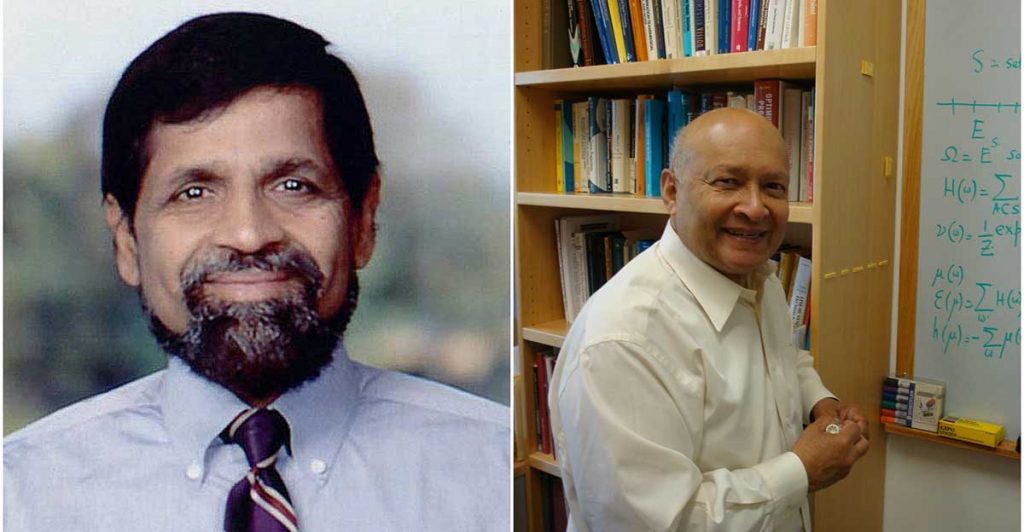Thomas Kailath, an Indian origin emeritus professor from Stanford University, has been conferred the Marconi Society’s Lifetime Achievement award. Kailath will receive the award at the annual Marconi Society Awards dinner on October 23, along with another Indian American, Arun Netravali, who will be given $100,000 Marconi Prize for Digital Video.
The latest Lifetime Award, given for the sixth time in the 43-year history of the society, recognises Kailath for his “transformative” contributions to information and system science over six decades, along with his mentoring and development of new generation of scientists, according to the Marconi Society. He has mentored more than 100 doctoral and post-doctoral students during his stint at Stanford.
The Mentor
One of the most notable example of his students is Arogyaswami Paulraj, now an emeritus professor in the electrical engineering department at Stanford University. He was honoured with the Marconi Prize in 2014.
Kailath and his students hold a dozen patents, and have successfully transitioned some of the research into industry. With Paulraj, Kailath is a joint holder of the original US patent for MIMO technology, which drives every WiFi, 4G, and 5G network today.
“Thomas Kailath has been an influential mentor to a number of Indian academics, including me, who worked in communications and control theory,” Paulraj said to The Week. “He hosted many of us at his research group at Stanford University, even in lean times when federal funding was tight,” he added, talking about how Kailath has maintained close links with the Indian Institute of Science, Bangalore, for over 30 years. In the 1970s, he also advised the Ministry of Defence in setting up the Research Centres at the IITs to support the Air Defense Ground Environment System (ADGES) plan of the Indian Air Force. “While the Lifetime Achievement Award from the Marconi Society recognizes Tom’s outstanding contributions at the global level, we in India can take special pride in Prof. Kailath’s remarkable achievements,” Paulraj said.
With his students, Kailath co-founded four companies, of which two went public — Integrated Systems, Inc. in 1980, which is now a part of Intel, and Numerical Technologies, Inc. in 1996 that was acquired by Synopsis in 2003. The 82-year-old scientist has made wide contributions to fields of information theory, communications, filtering theory, linear systems and control, signal processing, semiconductor manufacturing, probability and statistics, linear algebra, matrix and operator theory. These have directly or indirectly advanced modern communications technology.
Kailath has collected numerous awards until now, including the National Medal of Science from the then US President Barack Obama in 2012, the IEEE Medal of Honor in 2007, and the Padma Bhushan, which is third highest civilian honour in India, in 2009.
Background
Born in Pune in 1935 to Keralite parents, Kailath studied at St Vincent High School in the city. He then received his Bachelor’s degree in Telecommunications Engineering from the College of Engineering, Pune, in 1956. With a research assistantship in Information Theory Group, he came to the Massachusetts Institute of Technology (MIT) in 1957. In June 1961, he became the first Indian student to get a doctorate in electrical engineering at MIT. He became an associate professor at Stanford in January 196 and by 1968, he became a full professor. In 1988, he was appointed the first holder of the Hitachi America Professorship in Engineering at Stanford.
Arun Netravali
The former president of Bell Labs is considered the father of digital video for his pioneering work on video compression standards that served as the key base technology for MPEG 1, 2 and 4 and enabled a wide range of video services including digital TV, HDTV, and streaming video, ushering in a digital video revolution. The technology is used in most TV sets and all mobile phones today.
Netravali, who was born in Mumbai in 1946, has a degree from IIT, Bombay. He arrived in the US in 1967 with a full scholarship at Rice University. By the time he earned his PhD in 1970, he was committed to making a positive impact in his adopted country.
The Marconi Society
The Marconi Society is an American organisation named after Nobel laureate Guglielmo Marconi (1874-1937) who invented the radio. Set up in 1975 by Marconi’s daughter Gioia Marconi Braga, it is dedicated to furthering scientific communications and internet.
Thomas Kailath has joined the likes of Gordon Moore of the Moore’s Law fame and Claude Shannon, the father of Information Theory, as the recipient of the prestigious Lifetime Achievement Award.
